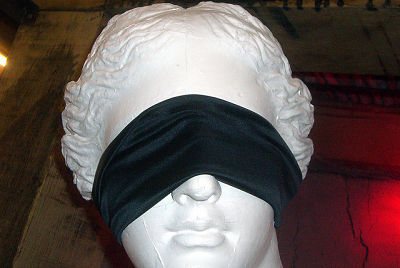We live in a world today with an enormous amount of news and information. Breaking news can literally occur on the other side of the planet and we can find out about it in minutes (or seconds). There has been an explosion of news and media outlets covering nearly every subject imaginable. While the availability of news and information is remarkable, I have decided to go on a news and information diet.

Every morning I would fire up my iPad and read through a series of news and media sites. The topics ranged from entertainment and sports to news and higher education. Throughout the day, I would also keep up with the news through Twitter, Facebook, and other sites. As part of my news and information diet, I have significantly cut this back.
I have decided that spending so much time on these activities was distracting me from accomplishing my important work. I also found that the “story of the day” would often be meaningless by the next day.
Why was I spending so much time and mental energy on news and information that wasn’t important in the grand scheme of things?
Are you interested in going on a news and information diet? Are you spending too much time keeping up with the world rather than making a difference in it?
Here are 5 tips to get you started.
1. Turn off notifications. Do you receive alerts, texts, and pop up messages for everything from email to breaking news? Turn all these off! Notifications are distracting and can take you away from important work. If you can’t go cold turkey then at least cut these back dramatically. For example, the only email notifications I receive are from my wife and a few close friends and colleagues. If one of these people send me a message, I want to know right away. Otherwise, the message can wait until I’m ready to process it.
2. Use a website blocking software. There are many different kinds of software that you can download to keep you from getting distracted. These programs block distracting websites (such as YouTube or Facebook) or block the internet for a set time. If you find yourself having a hard time staying focused and on task, these programs can help make it easier.
3. Don’t add a new website or RSS feed without deleting another one. Many of us have a series of websites or RSS feeds that we read every day. This list grows until we’re spending significant time reading blogs, news sites, and other pages. In order to keep this under control, remove a current site before adding a new one. This will help keep your reading list from growing without any controls. If you can’t find a current site to delete, should you be adding the new one?
4. Skim headlines and avoid reading full stories. Frequently, I can learn all I really want to know about a story just from reading the headline. I know Lebron is going back to Cleveland. I know a father left his child in the car who subsequently died. I have not read a single story on these subjects. Instead, I’ve skimmed the headlines. For many stories, I don’t need all the details. I’m learning to be content knowing the basics of what is going on without needing all the details. I’m still able to have conversations with people about what’s going on in the world and haven’t become a hermit. If anything, my knowledge base has grown because I’m skimming a wider range of stories in less time. It is a win-win.
5. Avoid surfing. I imagine we’ve all had the experience of sitting down and surfing the channels to see what’s on television. All of a sudden, you look up and realize that it has been an hour or two. And even worse, you’ve watched nothing, but just surfed around. The same thing obviously happens online. You might start out on one website, but next thing you know you’re jumping from page to page distracted by the new shiniest link. Close open windows and avoid link jumping to avoid this distraction.
If you’re suffering from information overload, going on a news and information diet can help. A great source for more information is Clay Johnson’s book on this subject, The Information Diet: A Case for Conscious Consumption. I’ve found my news and information diet to be enormously helpful. I would recommend it to you if you’re feeling overwhelmed and information overloaded.
Question: Are you on information overload? How do you try to limit your news and information consumption? You can leave a comment by clicking here.

